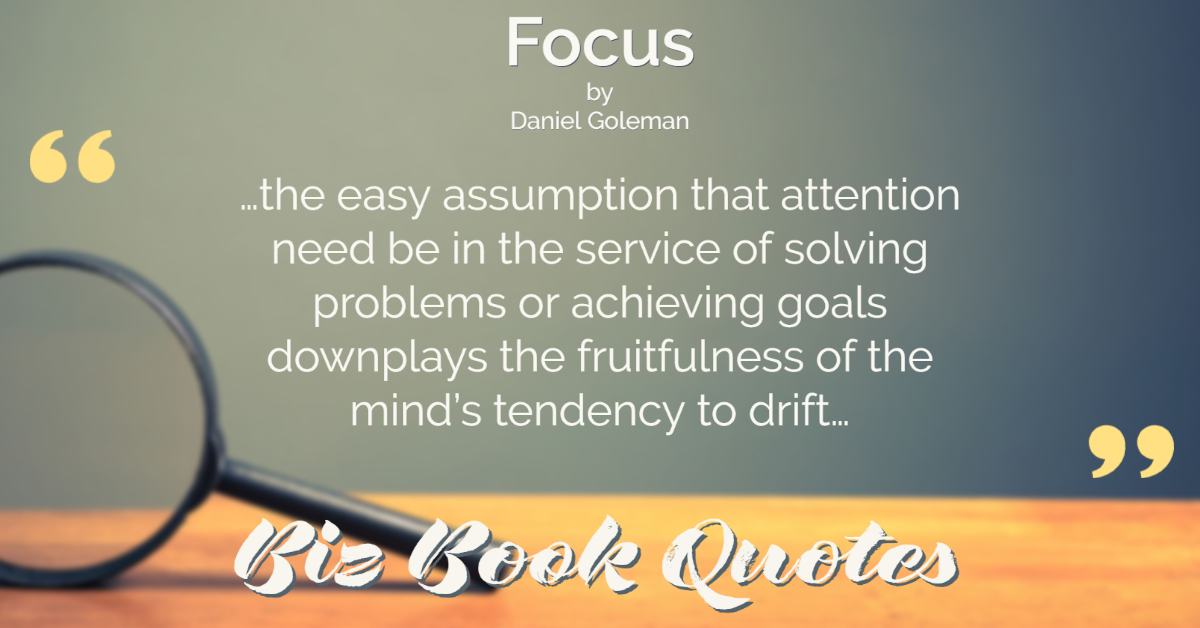 |
…the easy assumption that attention need be in the service of solving problems or achieving goals downplays the fruitfulness of the mind’s tendency to drift…
|
39 |
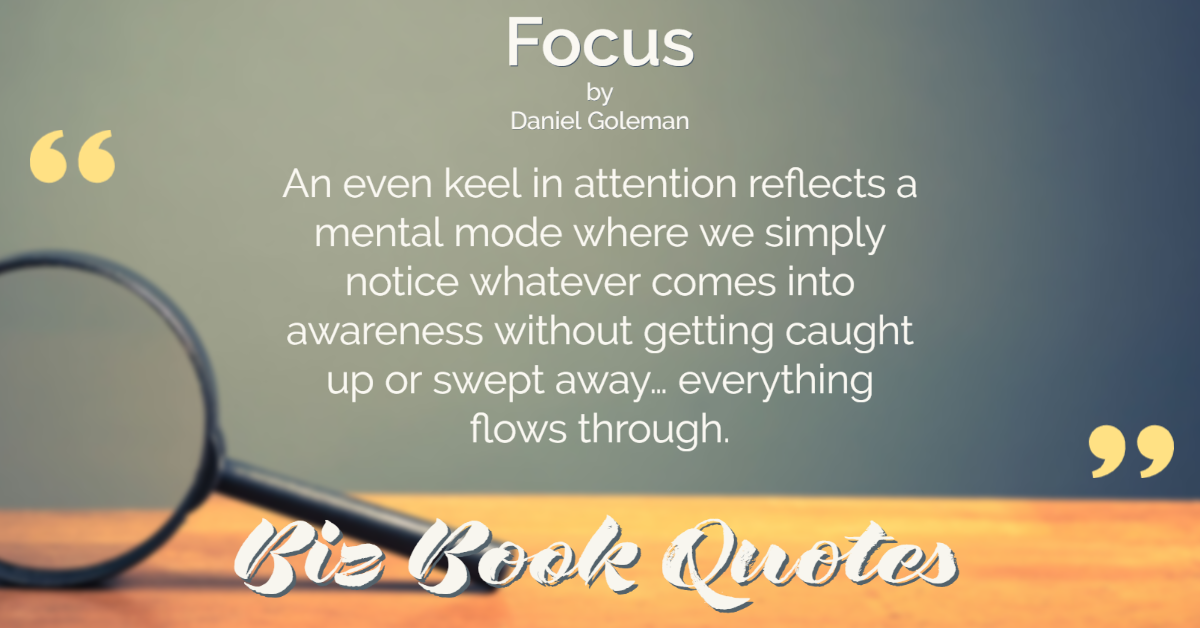 |
An even keel in attention reflects a mental mode where we simply notice whatever comes into awareness without getting caught up or swept away… everything flows through.
|
54 |
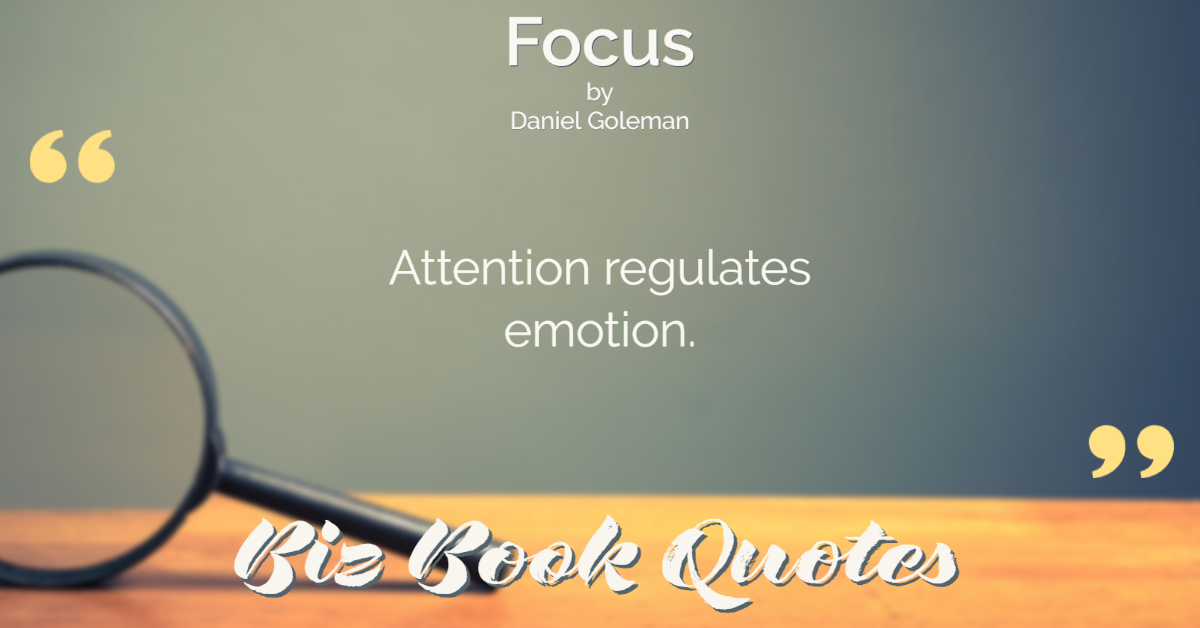 |
Attention regulates emotion.
|
76 |
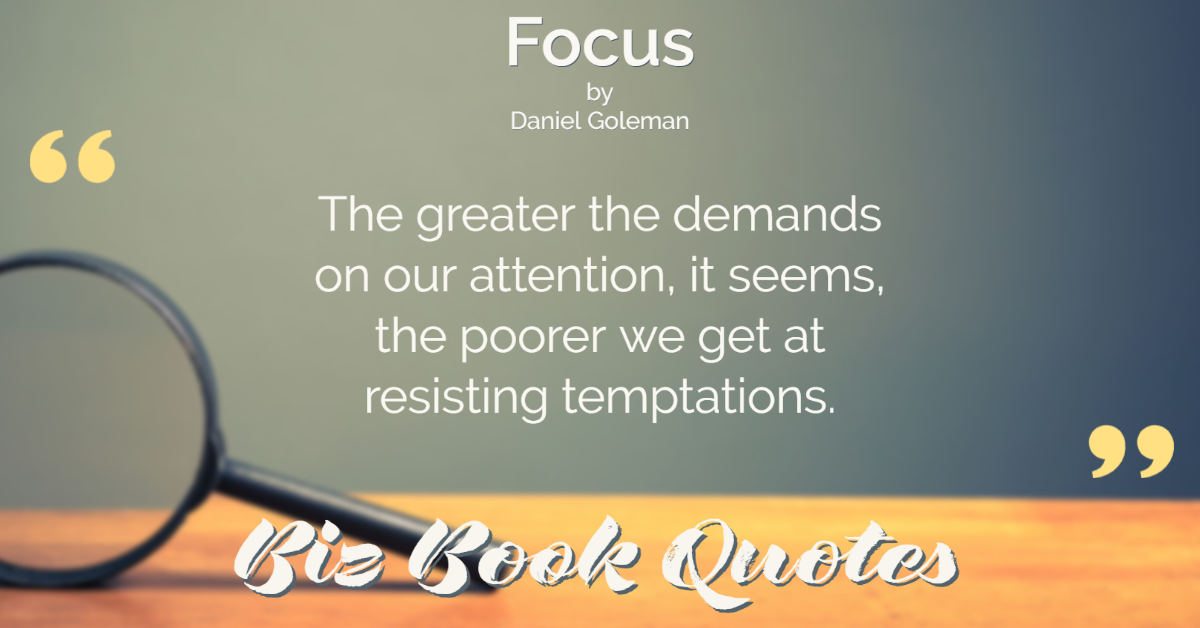 |
The greater the demands on our attention, it seems, the poorer we get at resisting temptations.
|
88 |
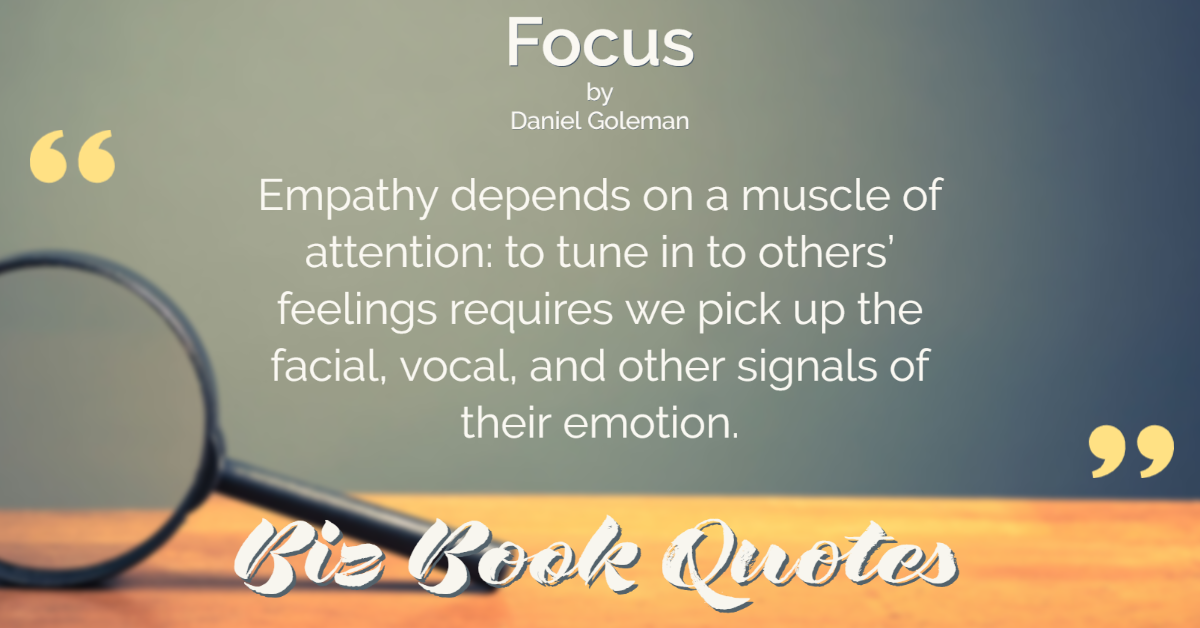 |
Empathy depends on a muscle of attention: to tune in to others’ feelings requires we pick up the facial, vocal, and other signals of their emotion.
|
104 |
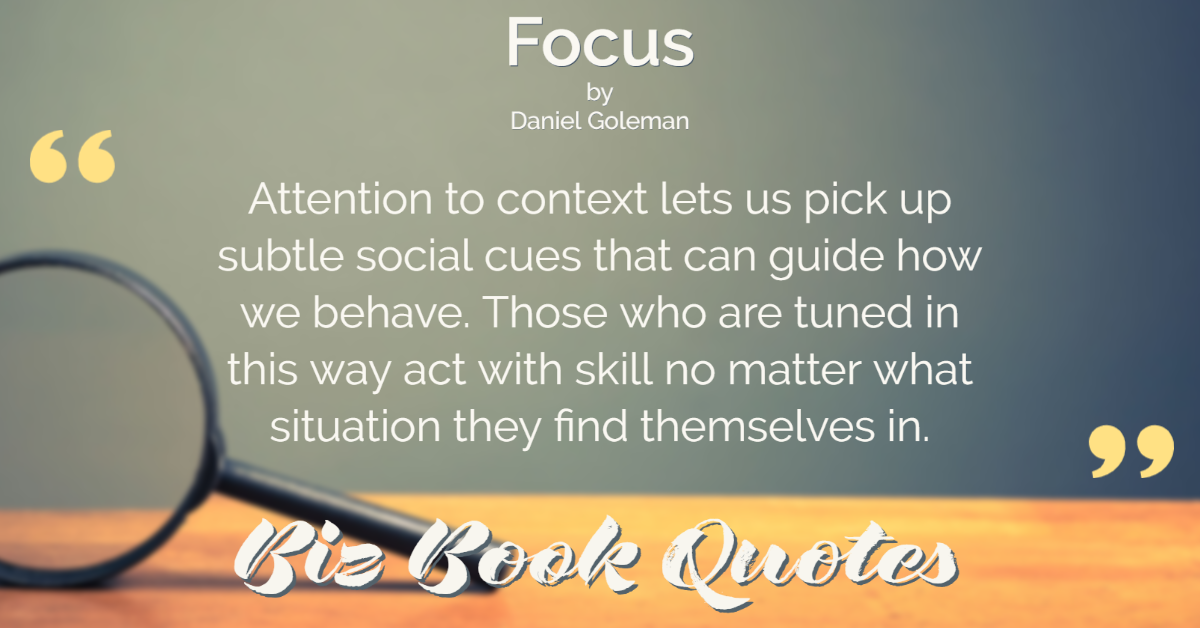 |
Attention to context lets us pick up subtle social cues that can guide how we behave. Those who are tuned in this way act with skill no matter what situation they find themselves in.
|
119 |
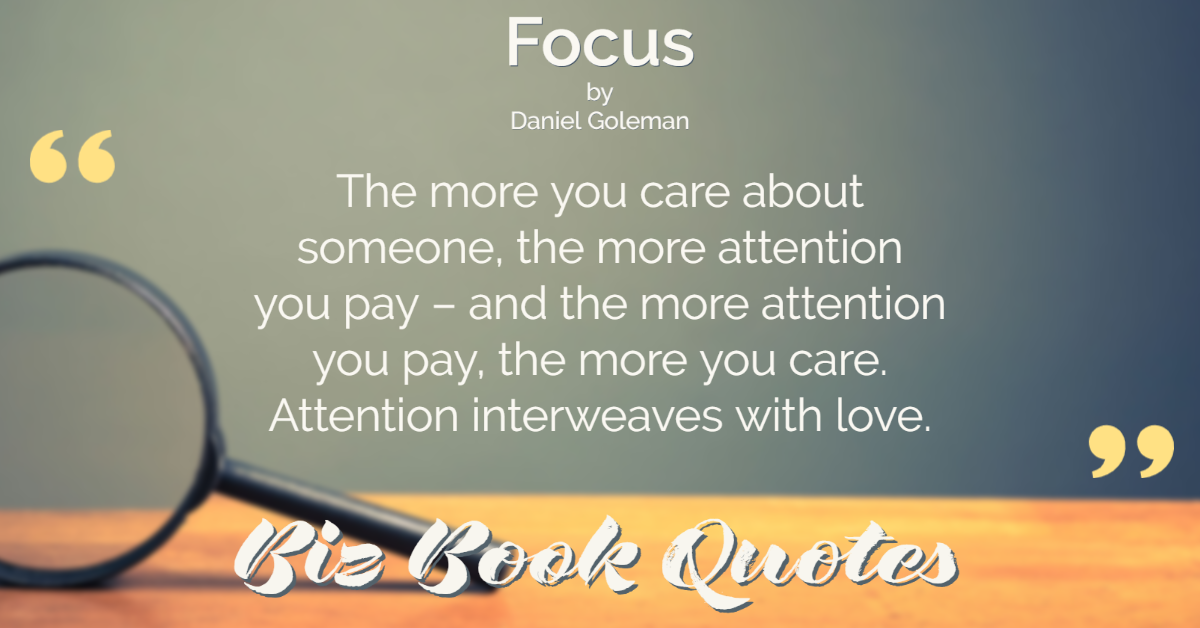 |
The more you care about someone, the more attention you pay – and the more attention you pay, the more you care. Attention interweaves with love.
|
125 |
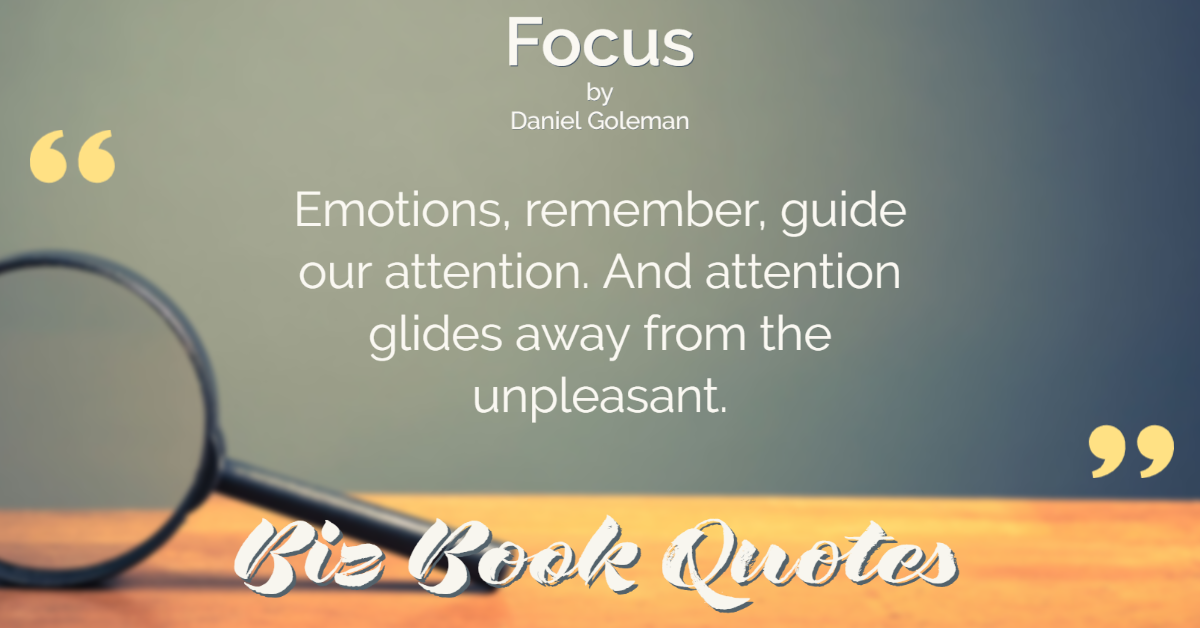 |
Emotions, remember, guide our attention. And attention glides away from the unpleasant.
|
150 |
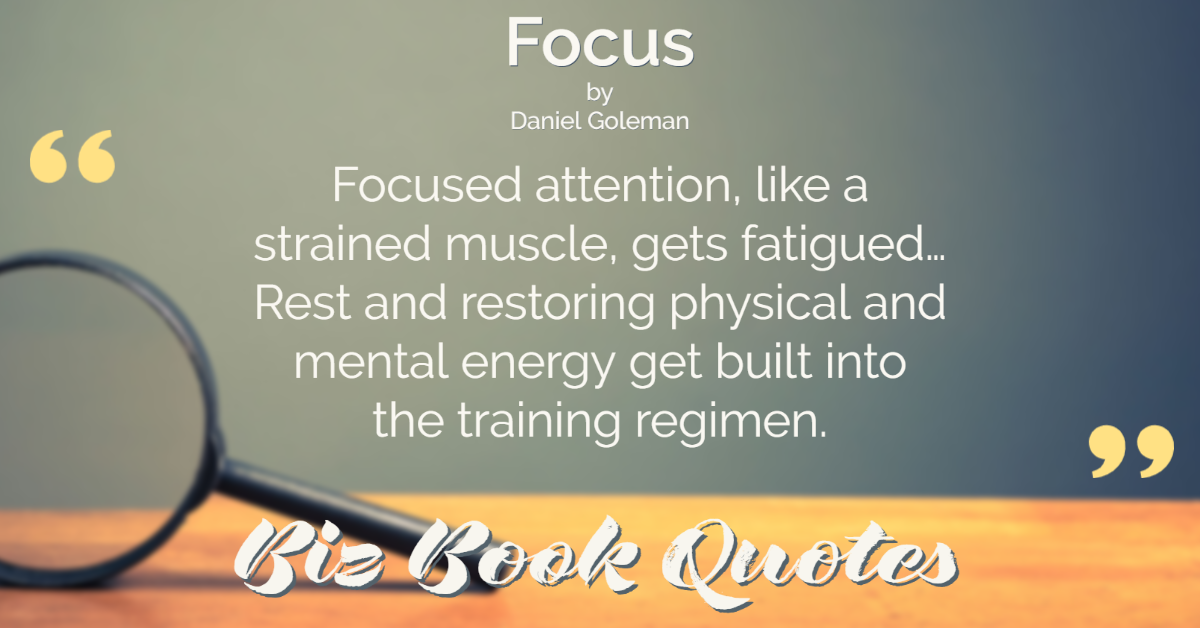 |
Focused attention, like a strained muscle, gets fatigued… Rest and restoring physical and mental energy get built into the training regimen.
|
165 |
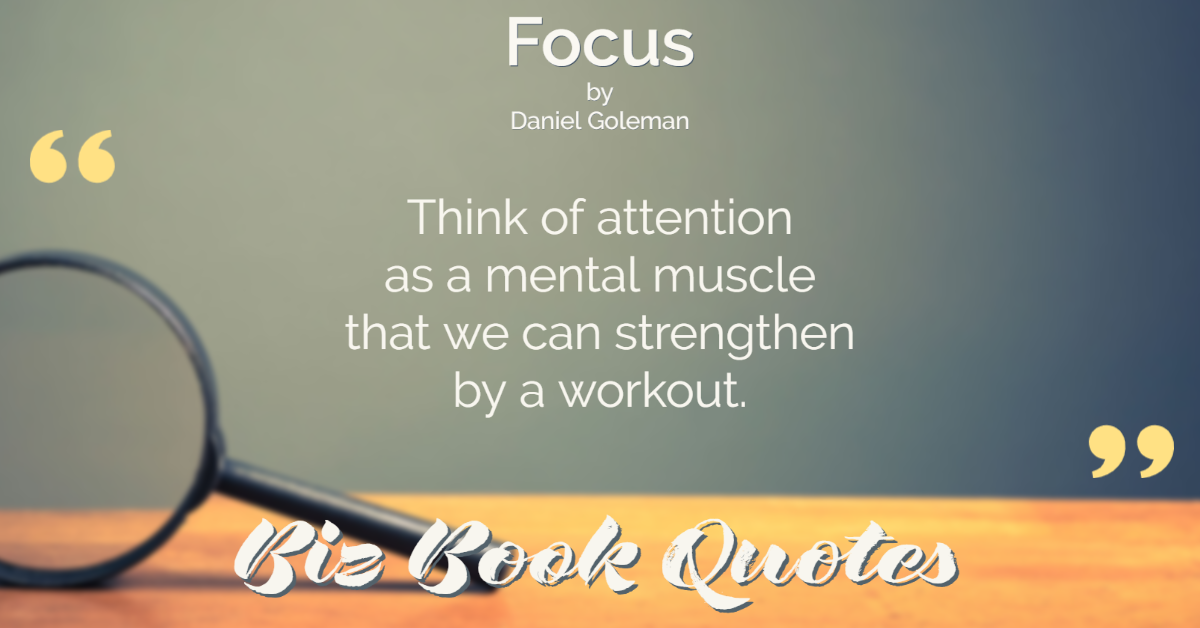 |
Think of attention as a mental muscle that we can strengthen by a workout.
|
168 |